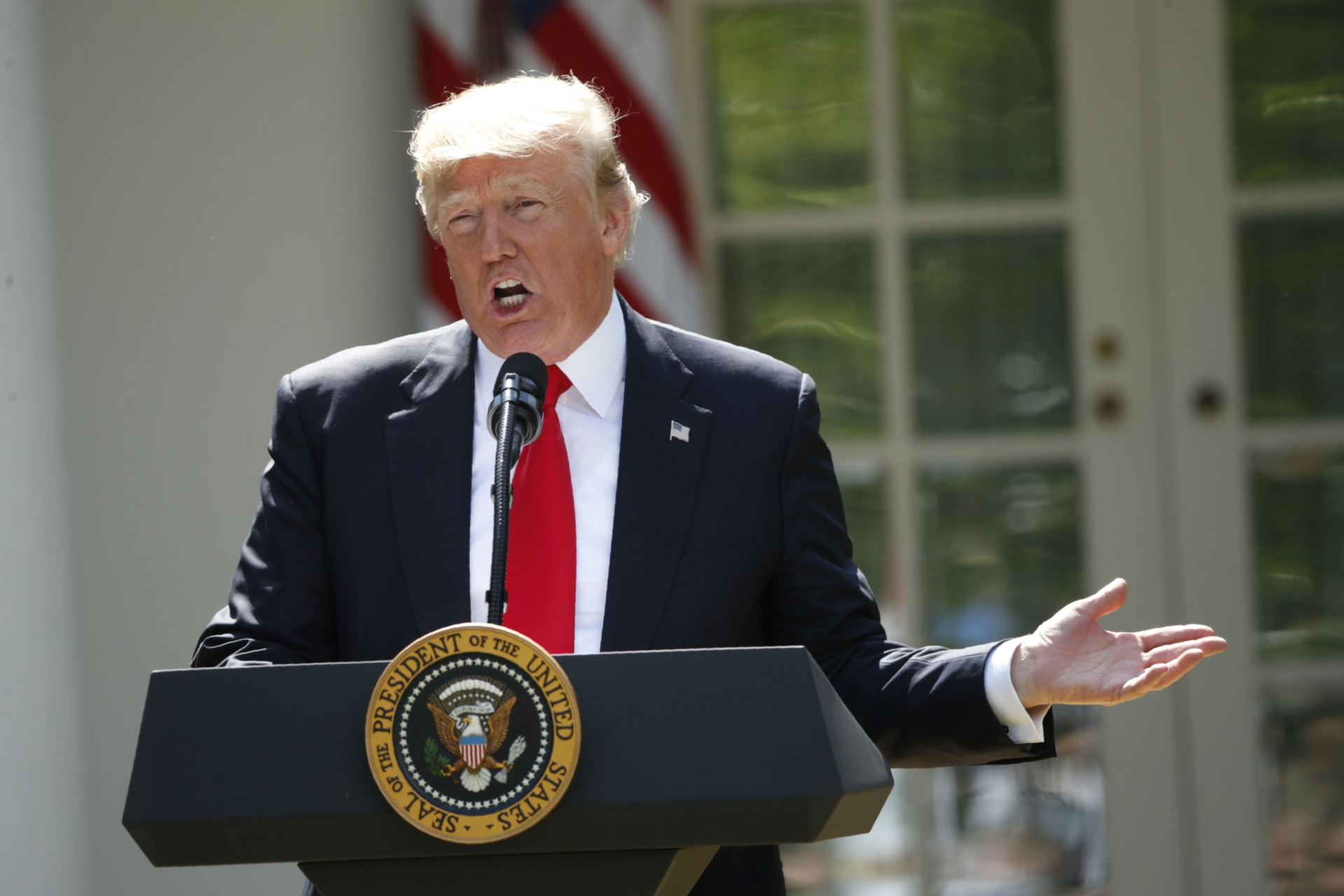The United States Left the Paris Agreement. Good.
President Trump has announced the United States will leave the Paris climate agreement. It just might save the deal.

This is a guest post by Lindsay Iversen, Associate Director, Climate and Resources at the Council on Foreign Relations. Follow her on Twitter @lindsayiversen.
Earlier this month, at a surreal Rose Garden press conference that had all the tawdry foreshadowing of a cheap game show reveal, President Donald Trump announced that the United States would revoke its commitment to the Paris climate agreement. In the intervening weeks, it has become clear that this wrongheaded decision will have myriad negative consequences for the United States, but for the Paris agreement itself, this is the best available outcome.
The best conceivable outcome, of course, would be for the United States to remain a constructive member of the deal, working with other signatories to build an ambitious, transparent, and successful climate regime under the Paris framework. Alas, under this presidency, the best conceivable option is not the best available one. The Trump administration considered only two policies: Undermine the deal from inside, or leave the deal entirely. Given those choices, the best available path was the path out the door.
Even nominal supporters of Paris inside the administration were, in essence, advocating its quiet destruction. They raised the possibility of major changes to U.S. participation in the deal, arguing that the United States could weaken its emission reduction pledge, renege on promised funding for climate activities in poor countries, and dilute Washington’s past support for robust, transparent monitoring institutions – all without risking the diplomatic backlash that would come from formally exiting the accord. Senior Obama-era officials, desperate to salvage something of the deal they helped negotiate, agreed that the deal was in fact flexible, publicly arguing that the accord allowed signatories to change their emissions reductions commitments whenever they saw fit.
Some held up Japan as an example of a country that had previously changed its UN emissions pledge. But it’s worth looking more closely at the context. In 2011, the largest earthquake ever to hit Japan triggered a thirty-foot tsunami, leading to a major disaster at the Fukushima Daiichi nuclear power plant. Tokyo temporarily shut down the rest of its nuclear power plants shortly thereafter, replacing the lost generation capacity with fossil fuel plants. It was in this context that Japan relaxed its emissions reduction pledge at the 2013 UN climate summit: in the midst of an unprecedented emergency that left it no choice but to raise its emissions. That is a far cry from changing a pledge for political expediency.
And though the agreement does in fact say that “A Party may at any time adjust its nationally determined contribution…” the words after the ellipsis are just as important: “A Party may at any time adjust its nationally determined contribution with a view to enhancing its level of ambition,” (emphasis added). Elsewhere the agreement says, “Each Party’s successive nationally determined contribution will represent a progression beyond the Party’s then current nationally determined contribution and reflect its highest possible ambition…” The pledges are voluntary but the spirit of the words is clear: countries should aim to make deeper emissions cuts over time.
Preserving that spirit is critical to the future success of the accord. The terms of the deal do not include enforcement measures or punishments for promises broken. The deal relies instead on normative conformity – pushing countries to uphold their commitments through peer pressure rather than formal requirements. If a major participant in the deal erodes those norms – by challenging the implicit expectation that pledges will become more ambitious over time and reducing its pledges for pedestrian political reasons – it invites other signatories to do the same. The strength and resiliency of the deal’s structure, now fueled by the shared commitment of all signatories, could instead rot quickly from within.
All things being equal, there is enormous value in keeping the United States inside the Paris agreement. It is the world’s largest cumulative greenhouse gas emitter and the second largest annual emitter. It is a hotbed of innovation in clean energy and the world’s largest economy and primary political power. But despite these attributes, it is not obvious that it is valuable to keep the United States in at any price.
Having the world’s richest and most powerful country inside the deal advocating for its improvement is one thing. But if its goal is to erode the foundations of the deal from within, by weakening the expectation that countries’ pledges will rise in ambition over time and cheapening the normative bonds that undergird the deal’s power, the United States would actually diminish the health, strength, and effectiveness of the deal.
Already, other countries are stepping up to claim the climate leadership role the United States has so carelessly discarded. The European Union and China reaffirmed their commitment to the accord in the days leading up to Trump’s announcement, pledging to meet their emissions and funding commitments under the deal and to “significantly intensify their political, technical, economic and scientific cooperation on climate change and clean energy.” India’s government also underscored its intent to remain in the agreement, noting that it “has taken up renewable energy as an article of faith and is steadfast on its Paris commitments, irrespective of what others do.” Cities, states, and corporations throughout the United States have likewise reaffirmed their plans to proceed with emissions cuts. If these and other signatories hold to these renewed commitments, the deal has a chance.
Let us be clear. Leaving the Paris agreement is a major blow to the United States. It will emerge from this decision weakened, out of step with its allies and commanding diminished respect. But the Paris agreement itself might just survive. And for that, we should say: Good.